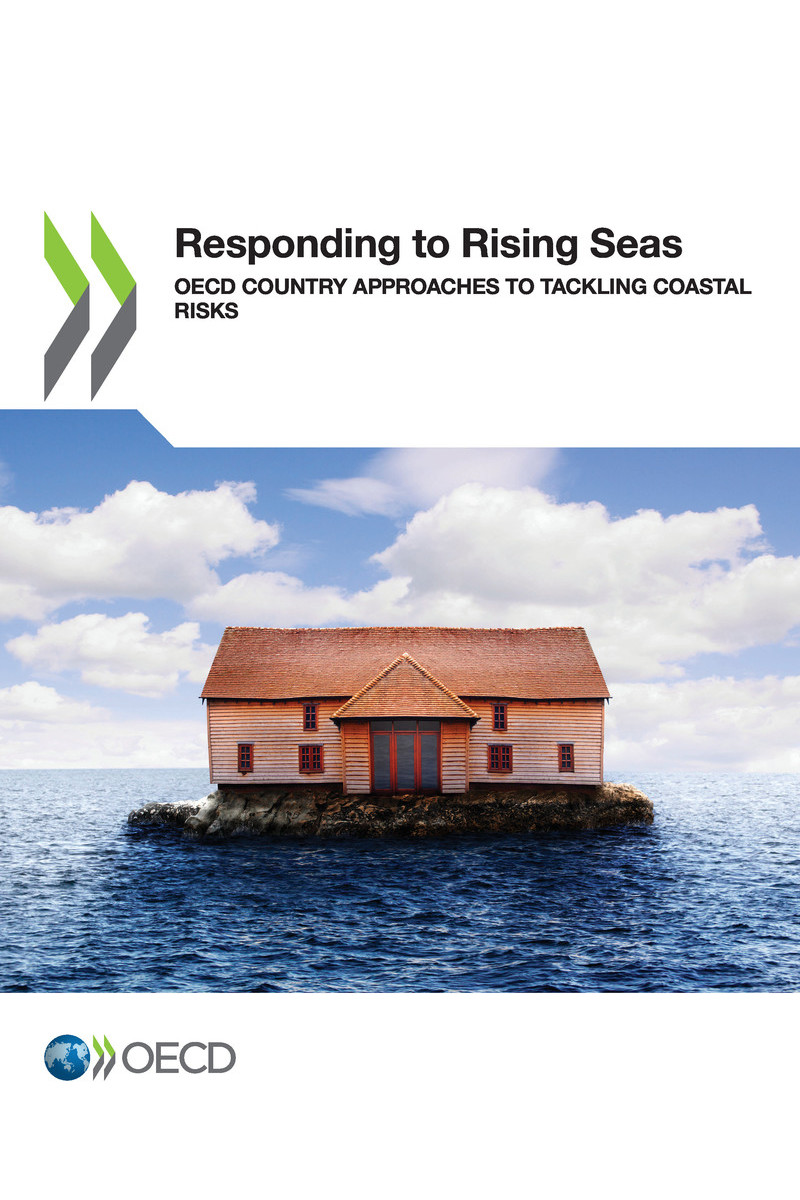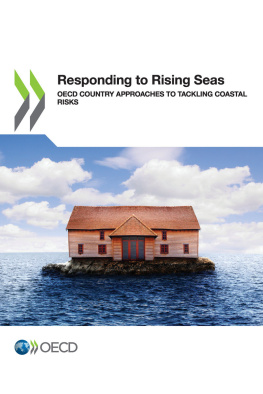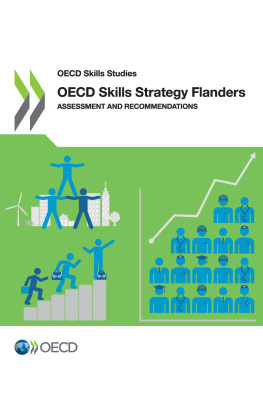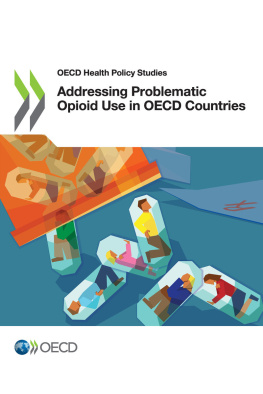OECD - Responding to Rising Seas
Here you can read online OECD - Responding to Rising Seas full text of the book (entire story) in english for free. Download pdf and epub, get meaning, cover and reviews about this ebook. year: 2019, publisher: OECD Publishing, genre: Business. Description of the work, (preface) as well as reviews are available. Best literature library LitArk.com created for fans of good reading and offers a wide selection of genres:
Romance novel
Science fiction
Adventure
Detective
Science
History
Home and family
Prose
Art
Politics
Computer
Non-fiction
Religion
Business
Children
Humor
Choose a favorite category and find really read worthwhile books. Enjoy immersion in the world of imagination, feel the emotions of the characters or learn something new for yourself, make an fascinating discovery.
Responding to Rising Seas: summary, description and annotation
We offer to read an annotation, description, summary or preface (depends on what the author of the book "Responding to Rising Seas" wrote himself). If you haven't found the necessary information about the book — write in the comments, we will try to find it.
OECD: author's other books
Who wrote Responding to Rising Seas? Find out the surname, the name of the author of the book and a list of all author's works by series.
Responding to Rising Seas — read online for free the complete book (whole text) full work
Below is the text of the book, divided by pages. System saving the place of the last page read, allows you to conveniently read the book "Responding to Rising Seas" online for free, without having to search again every time where you left off. Put a bookmark, and you can go to the page where you finished reading at any time.
Font size:
Interval:
Bookmark:

OECD (2019), Responding to Rising Seas: OECD Country Approaches to Tackling Coastal Risks , OECD Publishing, Paris.
https://doi.org/10.1787/9789264312487-en
Sea-level rise is one of the major challenges identified in the recent Intergovernmental Panel on Climate Changes Special Report Global Warming of 1.5C. It is almost certain that we will experience at least one metre of sea level rise, with some models estimating this will happen within the next 80 years. This will have serious implications for damage to infrastructure, loss of land and displacement of communities. Even if we succeed in limiting the temperature increase to 1.5 degrees, sea levels will continue to rise for centuries to come, due to emissions we have already locked in. While living on the coast has always come with a certain level of flooding and erosion risks, climate change will alter our coastlines and we must prepare for this new reality.
This report, Responding to Rising Seas: OECD Country Approaches to Tackling Coastal Risks takes a major step forward in providing policy guidance on how countries can more effectively manage the risks from sea level rise. The report takes stock of what OECD countries are currently doing to prepare for coastal change, and puts forward a policy framework for coastal adaptation that is equipped to meet the challenges of ever-increasing global temperatures. Four case studies Canada, Germany, New Zealand and the United Kingdom provide in-depth examples of the challenges and success factors of coastal adaptation strategies under different institutional contexts. This report builds on the body of OECD work on managing climate risks.
It is vital that countries strengthen their ability to understand, plan for and continuously manage climate risks. There is some progress more and more OECD countries are developing national strategies to cope with climate change, and sub-national and private actors are also increasingly tackling this issue. However, there is a pressing need to translate planning into implementation. This OECD report provides lessons learned and guidance for countries in approaching the challenges from climate change that will surely mount over coming years.

Rodolfo Lacy
OECD Environment Director
Responding to Rising Seas: OECD Country Approaches to Tackling Coastal Risks is an output of the OECD Environment Directorate.
This report was co-ordinated by Lisa Danielson. Chapters 1 was drafted by Alexander Bisaro, Jochen Hinkel and Daniel Lincke. Lisa Danielson and Michael Mullan drafted Chapter 2, and benefited from contributions from Alexander Bisaro. Lisa Danielson, Aurlien Seawert and Alexander Bisaro drafted Chapter 3. Alexander Bisaro and Jochen Hinkel drafted chapter 4. Kate Sherren, Tony Bowron, Jennifer M. Graham, H.M. Tuihedur Rahman and Danika van Proosdij drafted Chapter 5. Emma Corbett and Simon Bendall drafted Chapter 6. Nick Haigh drafted Chapter 7 and benefited from contributions from Rob Goodliffe and Kellie Fisher.
The authors would also like to thank OECD colleagues Simon Buckle, Xavier Leflaive, Nicolina Lamhauge, Leigh Wolfrom, Catherine Gamper, Teresa Deubelli, Oriana Romano, Kathleen Dominique, Will Symes, Rodney Boyd, Bril Anderson and Jane Ellis for their input and comments on earlier versions of the report. The authors are are also grateful for the oversight, review and comments by the Working Party on Climate, Investment, and Development (WPCID) and the Environment Policy Committee (EPOC). The production benefited from the assistance of Sama Al Taher Cucci and Anna Rourke.
Financial support from Natural Resources Canada is gratefully acknowledged. The authors would also like to thank the New Zealand Ministry for the Environment and the UK Department for Environment, Food & Rural Affairs for providing case studies. Special thanks is given to the Global Climate Forum for their support on this project.

Coastal zone : The interface between the land and the sea.
Dike/coastal realignment: The process of changing the line of currently maintained coastal defences, either by shortening defence length, moving defences inland or removing defences altogether. This allows for the creation of intertidal habitat (e.g. salt marshes), which can provide a natural buffer against tides and storm surges.
Ecosystem-based adaptation: Ecosystem-based adaptation is the use of biodiversity and ecosystem services as part of an overall adaptation strategy to help people to adapt to the adverse effects of climate change. It aims to maintain and increase the resilience and reduce the vulnerability of ecosystems and people.
Maladaptation: Actions that may lead to increased risk of adverse climate-related outcomes or increased vulnerability to climate change.
Nature-based solutions: Refers to an umbrella concept for various ecosystem-related approaches. It covers actions to protect, sustainably manage and restore natural or modified ecosystems. Nature-based solutions aim to achieve resilience in ways that enhance the resilience of ecosystems, their capacity for renewal and the provision of services.
Resilience: The ability of households, communities and nations to absorb and recover from shocks, while positively adapting and transforming their structures and means for living in the face of long-term stresses, change and uncertainty.
Font size:
Interval:
Bookmark:
Similar books «Responding to Rising Seas»
Look at similar books to Responding to Rising Seas. We have selected literature similar in name and meaning in the hope of providing readers with more options to find new, interesting, not yet read works.
Discussion, reviews of the book Responding to Rising Seas and just readers' own opinions. Leave your comments, write what you think about the work, its meaning or the main characters. Specify what exactly you liked and what you didn't like, and why you think so.


















